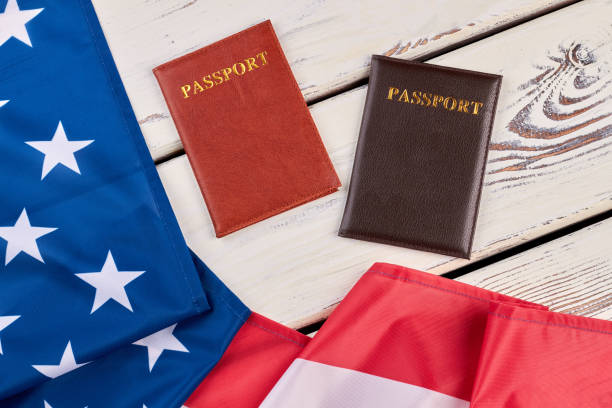
In today’s interconnected world, some have the unique privilege of holding citizenship in not just one but two countries simultaneously. This blog post explores the advantages and considerations associated with dual citizenship.
1. Getting Dual Citizenship: How It Happens
Dual citizenship means being a citizen of two countries at the same time. You can get it in a few ways. You might automatically get dual citizenship if you’re born in a country that gives citizenship based on where you’re born (just soil) and your parents are from another country. Some countries also let you become citizens if your family or grandparents are from there. This is called citizenship based on descent or ancestry.
Another way is through naturalization, where foreigners become citizens. In some places, you don’t have to give up your original citizenship during this process. Getting married to someone from another country or having agreements between countries can also lead to dual citizenship. Sometimes, special situations or doing something exceptional might make a country give you dual citizenship.
Things to Know About Dual Citizenship
The rules for dual citizenship are different in every country. While some countries are fine with it, others might have strict rules or say no. To get it, you must understand the country’s laws. If you’re thinking about it, do some research, get advice if you need it, and also follow the rules laid out by the governments. Getting dual citizenship is a big decision, so knowing what you’re getting into and what’s expected of you in both countries is good.
2. Rights and Responsibilities: Enjoying Benefits and Fulfilling Duties
Holding citizenship in two places comes with distinct advantages. You can vote, work, own property, and access government assistance. However, like any responsible citizen, you must adhere to the rules and fulfill civic duties, such as paying taxes.
Benefits of Having Dual Citizenship: Enjoying Two Countries at Once
Travel Freedom:
Move easily between your two countries without dealing with visa hassles.
More Choices:
Open up more job, education, and lifestyle options by being a citizen of two places.
Rich Culture:
Stay connected to diverse cultures, languages, and traditions from both countries.
Easier Property Ownership:
Own property with fewer restrictions, making real estate investment simpler.
Business Opportunities:
Make it easier to do business, invest, and collaborate internationally.
Social Benefits:
Access to healthcare, education, and public services in both countries.
Voting Power:
Have a say in both countries’ elections by exercising your right to vote.
Extra Safety Net:
Feel more secure with the option to seek help or refuge in either country during emergencies.
Retirement Choices:
Choose where to retire based on what suits your preferences and lifestyle.
Smart Finances:
Benefit from better inheritance laws and plan your finances wisely with dual citizenship.
Remember, it’s important to check the rules of both countries and get advice if you’re considering having dual citizenship.
3. Potential Restrictions: Points to Be Mindful Of
While holding dual citizenship is exciting, it’s essential to be aware that some countries may have certain rules you need to consider. Here are a couple of things to keep in mind:
Choosing Single Citizenship Later in Life:
- Some countries might ask you to pick just one citizenship when you reach a certain age. You’ll need to decide which country’s citizenship you want to keep.
Example: If you’re a dual citizen of the United States and Canada, and one of these countries requires you to choose one citizenship at age 18, you’ll need to decide whether you want to remain a U.S. citizen or a Canadian citizen.
Limitations on Specific Professional Roles:
- Certain countries might have rules about dual citizens holding specific jobs or positions. This could mean limitations on roles in government or other areas where they want to ensure undivided loyalty.
Example: Let’s say you’re a dual citizen of Germany and Australia, and Germany has restrictions on dual citizens working in certain government positions. You should be mindful of these rules when considering your career path and making choices that align with the regulations of both countries.
Understanding these potential restrictions helps you navigate dual citizenship wisely. Always check the rules of each country involved to make informed decisions about your citizenship status.
4. International Rules:
Each country has its stance on dual citizenship. Some are open to it, while others may have more complex regulations. Understanding the policies of each country involved is important for those considering or navigating dual citizenship.
5. Renunciation: Balancing Commitments
Occasionally, getting citizenship in a new country may mean giving up your citizenship to the previous country. However, this is only sometimes the case; many individuals have citizenship in both countries.
6. Travel and Living Perks
One of the notable advantages is the ability to travel between your two countries without hurdles. There’s no need for special documents or visas – simply pack your bags and go!
Celebrating Multinational Identity
In a world where connections know no borders, holding dual citizenship is like having a valuable asset. It enables individuals to actively engage and contribute to diverse communities.
Your Passport Journey Starts Here
At The Passport Office, we are your go-to destination for swift and reliable passport services. Whether you need a new passport, renewal, child passport, or assistance with name change applications, stolen or lost passports, and damaged passports, we’ve got the expertise to handle it all. With our fastest service, experience a remarkable 3-5 day turnaround, ensuring you can embark on your travels without any delays.
